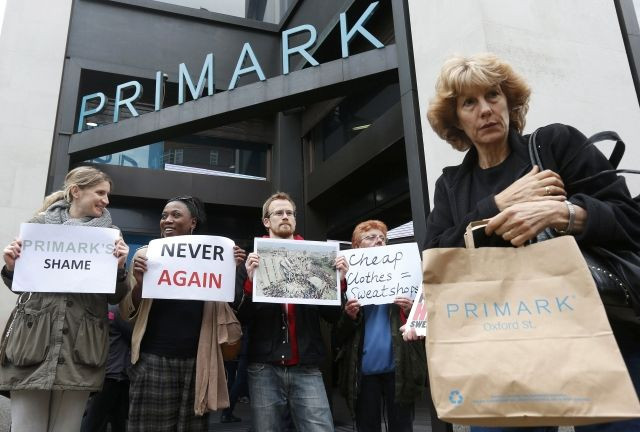Bangladesh Building Collapse: Leading Retailers Primark, Loblaw To Compensate Victims; Dhaka Rejects UK, UN Aid

Two Western retailers, whose suppliers were housed in a garment factory that collapsed in Bangladesh on April 24, promised on Monday monetary compensation for the families of the victims of the country’s worst industrial accident.
Toronto-based supermarket chain Loblaw, which makes the Joe Fresh clothing line, and British retailer Primark said they would spend an unspecified amount to help the next of kin of the 385 or more who lost their lives in the building collapse, Reuters reported.
The retailers’ decision is being touted as unusual and a reflection of the growing sense of responsibility on the part of Western corporations that outsource their operations for cheap labor. Their aid comes amid calls in the West for the companies take responsibility for the tragedy.
Meanwhile, the Bangladeshi government turned down help from both the U.K. government and the UN, which had offered to dispatch teams of experts to assist with the relief operations.
Bangladeshi Home Minister Muhiuddin Khan Alamgir told the BBC that authorities were confident they could deal with the crisis, and that emergency services did “a good job.”
He pointed out that nearly 2,430 of at least 3,000 people who had been in the building survived.
The minister said this figure was “better than the average international effort in such cases.”
“We did a good job and I am proud of my people -- the firemen, the military, the police, the local volunteers who all came in to help,” he said.
Alamgir added that foreign nations had not provided a list of specialist equipment Bangladesh had asked for.
However, according to Mark Doyle, the BBC’s international development correspondent, it is unusual for countries -- whether rich or poor -- to decline help when disaster strikes.
He pointed out that hundreds of foreign rescuers came together after the 2010 Haiti earthquake, as they did after the 2011 earthquake and tsunami in Japan.
Six days after the building collapse, with almost no hope left of finding more survivors, heavy machinery has been brought in to start clearing rubble from the site, which is in the commercial suburb of Savar, about 30 kilometers (20 miles) from Dhaka, the capital.
Eight people have been arrested so far -- four factory bosses, two engineers, building owner Mohammed Sohel Rana and his father, Abdul Khalek. Police are looking for a fifth factory boss, Spanish citizen David Mayor, although it was unclear whether he was in Bangladesh at the time of the accident, Reuters reported.
Bangladesh is the world's biggest exporter of clothing after China and has approximately 4,500 garment factories that manufacture clothes for foreign brands including Tesco, Wal-Mart, JC Penney, H&M, Marks & Spencer, Kohl’s and Carrefour. The ready-made garment (RMG) industry makes up 80 percent of all exports, totaling more than $15 billion in the 2012-13 financial year.
However, enforcement of safety standards at the factories is believed to be inadequate, which has led to several deadly accidents in the past.
The industry, comprising 3.6 million garment workers, has also been criticized for its low pay, limited rights granted to workers and often dangerous working conditions in the factories. Most of those employed in garment factories are women, earning an average monthly salary of roughly $40.
© Copyright IBTimes 2025. All rights reserved.






















